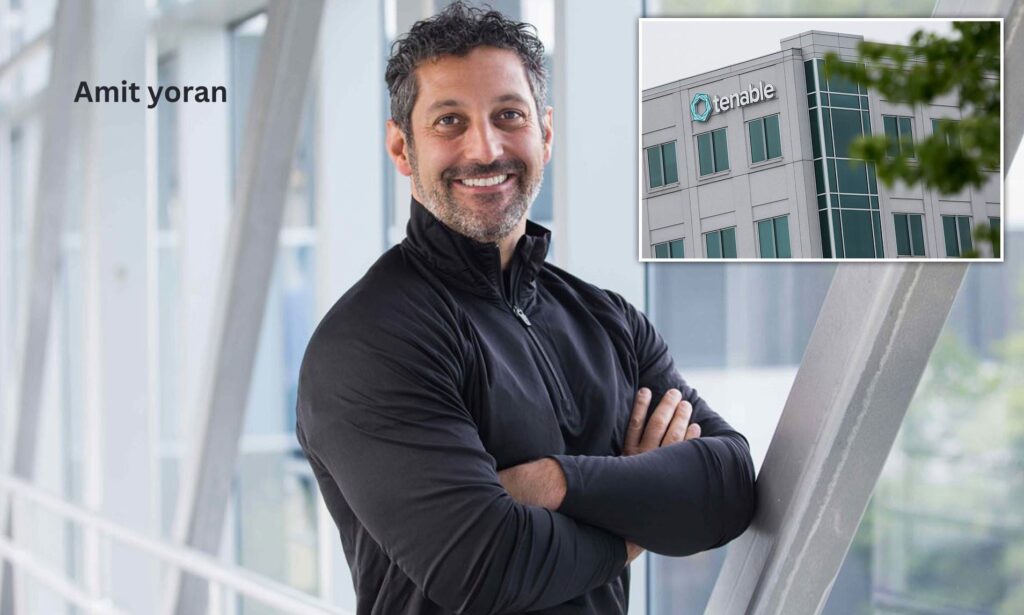When discussing pioneers in cybersecurity, the name Amit Yoran stands out as one of the most influential figures in the industry. With a career spanning decades, Yoran has played a critical role in shaping how businesses and governments approach digital security. His vision, combined with his technical expertise, has made him a prominent voice in the fight against cyber threats.
Early Life and Education
Amit Yoran’s journey began with a strong academic foundation. He pursued a degree in computer science at the United States Military Academy at West Point, where he graduated with distinction. This education provided him with not only technical knowledge but also a disciplined and strategic mindset. Following his time at West Point, Yoran continued his studies, earning a Master’s degree in computer science from George Washington University. These early experiences laid the groundwork for his future success.
A Career Rooted in Cybersecurity
Amit Yoran started his professional career by serving as an officer in the United States Air Force. During his tenure, he worked on several high-profile projects related to cybersecurity and network defense. His work in the Air Force gave him first-hand experience with emerging cyber threats and the complexities of protecting sensitive data.
After leaving the military,Amit Yoran transitioned to the private sector, where he co-founded Riptech, a company focused on managed security services. Riptech was one of the first organizations to offer real-time monitoring and analysis of cyber threats, a concept that has become a cornerstone of modern cybersecurity. The company’s success caught the attention of larger players in the industry, and it was eventually acquired by Symantec in 2002.
Government Leadership
Amit Yoran’s expertise did not go unnoticed by the government. In 2003, he was appointed as the Director of the National Cyber Security Division at the Department of Homeland Security (DHS). In this role, Yoran was responsible for creating and implementing strategies to protect the nation’s critical infrastructure from cyberattacks. His tenure at DHS was marked by significant advancements in how the government collaborated with the private sector to address cybersecurity challenges.
Despite his relatively short time at DHS, Yoran’s impact was profound. He was instrumental in the development of the US-CERT (United States Computer Emergency Readiness Team), which remains a vital component of the country’s cybersecurity framework.
Innovation in the Private Sector
After leaving DHS, Amit Yoran continued to influence the cybersecurity landscape through leadership roles in the private sector. One of his most notable positions was as the CEO of NetWitness, a company specializing in advanced threat detection and network forensics. Under his leadership, NetWitness developed groundbreaking technologies that helped organizations identify and mitigate sophisticated cyber threats. The company’s success culminated in its acquisition by RSA, a subsidiary of EMC, in 2011.
At RSA, Amit Yoran took on the role of Senior Vice President and later became the company’s President. During his time at RSA, he emphasized the importance of intelligence-driven security, a philosophy that prioritizes understanding the adversary and anticipating their moves. This approach has become a standard in the industry, influencing how many organizations design their cybersecurity strategies.
Current Role and Vision
Amit Yoran is currently the Chairman and CEO of Tenable, a leading provider of vulnerability management solutions. At Tenable, he has continued to push the boundaries of cybersecurity by focusing on the concept of cyber exposure. This approach aims to provide organizations with a comprehensive understanding of their security posture across their entire digital ecosystem, from traditional IT assets to cloud environments and operational technology.
Under Yoran’s leadership, Tenable has grown significantly, both in terms of market presence and technological innovation. His ability to anticipate industry trends and adapt to the evolving threat landscape has been a key factor in the company’s success.
Advocacy and Thought Leadership
Beyond his professional roles, Yoran is a passionate advocate for better cybersecurity practices. He frequently speaks at industry conferences, sharing insights on emerging threats and effective defense strategies. His thought leadership has influenced policymakers, business leaders, and cybersecurity professionals worldwide.
Yoran has also been a vocal critic of inadequate security measures and has called for greater accountability in addressing vulnerabilities. He believes that cybersecurity is not just a technical issue but a strategic one that requires attention from the highest levels of leadership within organizations.
Challenges and Triumphs
Throughout his career, Yoran has faced numerous challenges, from navigating the complexities of public-private partnerships to addressing the rapid evolution of cyber threats. However, his resilience and innovative thinking have allowed him to overcome these obstacles and drive meaningful change in the industry.
One of his most significant achievements is his ability to bridge the gap between technical expertise and strategic vision. Yoran’s work has shown that effective cybersecurity requires a holistic approach that combines advanced technology, strong leadership, and collaboration across sectors.
A Lasting Legacy
Amit Yoran’s contributions to cybersecurity have left an indelible mark on the industry. His work has not only advanced the state of technology but also changed how organizations and governments view their role in protecting digital assets. As threats continue to evolve, Yoran’s leadership and vision remain as relevant as ever.
Conclusion
Amit Yoran’s career is a testament to the impact that one individual can have on a complex and rapidly changing field. From his early days at West Point to his current role at Tenable, Yoran has consistently demonstrated a commitment to innovation, excellence, and collaboration. His legacy serves as an inspiration to current and future generations of cybersecurity professionals, reminding us of the importance of staying vigilant and adaptable in an increasingly connected world

